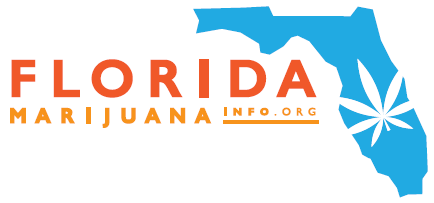Under SB 1030, the Compassionate Medical Cannabis Act of 2014, the state legislature appropriated $1 million for research on low-THC cannabis and CBD, to fund research at state universities that have both medical and agricultural research programs. Much of the research was to involve the use of CBD and low-THC cannabis in treating intractable childhood epilepsy. Research was also to be done on, “agricultural development, production, clinical research, and use of liquid medical derivatives of cannabidiol and low-THC cannabis for the treatment for refractory or intractable epilepsy.” State Rep. Katie Edwards (D-Plantation), a co-sponsor of SB 1030, told the Sunshine State News, “I hope UF speaks up at the Department of Health rule-making workshop to clarify to what extent they are willing and able to participate in this.”
University of Florida Likely to Back Out of Medical Cannabis Research
But it seems unlikely that the University of Florida will be doing major research into growing or distributing low-THC cannabis or CBD. It is expected that the university will reveal the level of participation they will have in the program. “We’ve had attorneys at UF and in Washington, D.C., look at this law, and as much as we want to participate fully, UF receives hundreds of millions of dollars in student financial aid and grants for other work and we just can’t risk it by going against the Drug Enforcement Agency or the Food and Drug Administration,” Mary Ann Gosa-Hooks, Director of Government Affairs for the University of Florida, told Sunshine State News.
Under the federal Controlled Substances Act, the DEA would have to give the university approval and licenses to do research involving cultivation of cannabis or distributing cannabis to patients. In a Q&A document released by the University of Florida, the university explains that they would need an exemption from the Florida Department of Business and Professional Regulation, as well as having to complete registration from the DEA. Prior to being granted registration, the university would have to be investigated, interviewed, and inspected. According to the Q&A, the University of Florida “can’t” cultivate low-THC cannabis. While it is technically possible that the DEA could approve the cultivation and research, it is unlikely, as the agency has delayed and denied many proposed cannabis research projects.
“Based on the above, it would be difficult to see how cultivation, for that purpose alone, or for the purpose of distribution, would be approved by the DEA. Also, as a practical matter, security of the greenhouses would be an issue. Based on in-depth news stories concerning California and Colorado, licensed growers have armed guards 24/7. Bottom line, the DEA would have to approve any activity involving the use of controlled substances, especially Schedule I drugs. Please let me know if you have any questions,” B. Dianne Farb, J.D., Associate University Counsel for Research and Health Affairs at the University of Florida said in the Q&A document. “The university may possess and conduct research on marijuana if the Drug Enforcement Agency (DEA) approves a registration and the institution complies with the robust restrictions imposed by the registration,” Mary Ann Gosa-Hooks said in a letter.
According to Associate University Counsel for Research and Health Affairs, B. Dianne Farb, the university “can” do research, with DEA approval, on the basic science. They already have the security needed to work with small quantities. Animal research would also be possible with approval from both the DEA and IACUC (Institutional Animal Care and Use Committee). If animal research involved exposure to smoke, the smoke would have to be contained and exhausted through a standard fume hood. The Q&A also talks about the need for a carbon filter, to prevent the exhaust from smelling. The Q&A also stated that human subject research could also be conducted with approval from the DEA, the IRB (Institutional Review Board), and it is believed the FDA would also require an Investigational New Drug Application. The Psychology Department of the University of Florida has “phone booth” style smoking chambers that were used in researching the effects of cigarettes. An exemption from the state’s Indoor Clean Air Act may be required.
Federal Cannabis Monopoly Stands in Way of Florida Research
Unlike Florida’s first medical cannabis research act, the Controlled Substances Therapeutic Research Act of 1978 (later renamed the Cancer Therapeutic Research Act of 1981), the Compassionate Medical Cannabis Act of 2014 doesn’t rely on permission from the DEA. Florida’s medical cannabis research program of the late 1970s and early 1980s was done in full cooperation with the DEA, the National Cancer Institute, and the National Institute on Drug Abuse. Since the 1990s, modern medical cannabis laws do not rely on cooperation with the federal government, as the supply for medical research was tightly restricted and ended up shutting down many of the therapeutic research programs of the 70s and 80s.
“In order to get marijuana from the University of Mississippi, the university would have to obtain the necessary federal permits. Obtaining the federal permits would require a research proposal, along with protocols for how the marijuana will be used in the research, how the material would be secured and disposed of,” Gosa-Hooks told Sunshine State News. “After permits are awarded, an application could be made to the University of Mississippi for the material specified in the research and permits.” The University of Mississippi has a virtual monopoly on where federal cannabis is cultivated. “The university would not be able to join with the agricultural industry in Florida to participate in, or oversee/supervise, the cultivation, manufacture or distribution of marijuana (including by growing marijuana for research, creation of seedlings or provision of plant material to others) for any purpose, including research or medical use.”
Check back for Part 2 of Florida’s Low-THC Cannabis Program Faces Hurdles: No Legal Seed Source














 OMD Agency
OMD Agency
Recent Comments